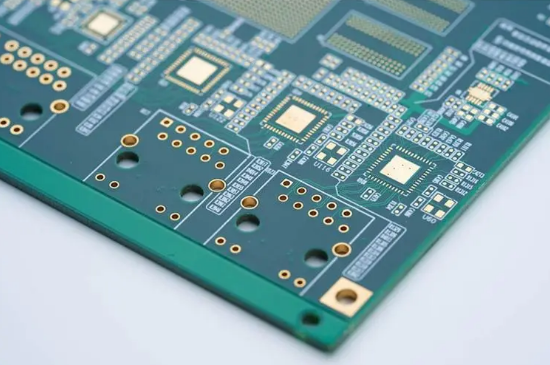When choosing the right multilayer PCB (Printed Circuit Board) material, several factors need to be considered to ensure optimal performance and reliability. Here are some key considerations to help you make an informed decision:

1.Electrical Properties: Evaluate the electrical properties of the PCB material, such as dielectric constant, dissipation factor, and impedance control. These properties affect signal integrity, transmission speeds, and the overall performance of high-frequency applications.
2.Thermal Management: Consider the thermal properties of the material, including its coefficient of thermal expansion (CTE) and thermal conductivity. Effective thermal management is crucial to prevent overheating and ensure the reliability of components.
3.Mechanical Strength: Assess the mechanical properties of the material, such as tensile strength, flexural strength, and impact resistance. The PCB material should withstand mechanical stress during fabrication, assembly, and operation.
4.Environmental Considerations: Determine the environmental conditions in which the PCB will operate, such as temperature extremes, humidity, or exposure to chemicals. Choose a material that can withstand these conditions without degrading performance or reliability.
5.Cost Considerations: Evaluate the cost-effectiveness of the PCB material, considering factors such as fabrication cost, material availability, and any specialized manufacturing requirements. It's important to balance performance requirements with budget constraints.
6.Manufacturing Compatibility: Ensure that the chosen material is compatible with the manufacturing processes and technologies available to you or your PCB manufacturer. Some materials may require specialized equipment or techniques, which can impact production costs and lead times.
7.Industry Standards and Certifications: Check if the PCB material meets relevant industry standards and certifications, such as UL (Underwriters Laboratories) or IPC (Association Connecting Electronics Industries) standards. Compliance with these standards ensures the material's quality and reliability.
8.Supplier Support: Consider the reputation and support provided by the material supplier. It's important to choose a reliable supplier who can offer technical assistan
Some common materials used for multilayer PCBs include FR-4 (Flame Retardant 4), high-speed materials like FR-4 with enhanced electrical properties or specialized laminates such as polyimide or PTFE-based materials.
Ultimately, the choice of PCB material depends on the specific requirements of your application. Consulting with a PCB design expert or manufacturer can provide valuable insights and help you select the most suitable material for your project.
get more knowledge about How to Choose the Right Multilayer PCB Material please refer to Rigaopcb https://www.rigaopcb.com/